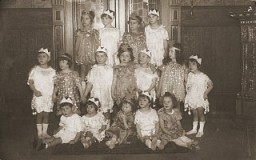
Article
Browse an alphabetical list of articles about the Holocaust and World War II. Learn more about topics such as the Nazi rise to power, how and why the Holocaust happened, life in Nazi camps and ghettos, and the postwar trials.
<< Previous | Displaying results 26-36 of 36 for "Article" | Next >>
-
Polish Victims
ArticleIn September 1939, the Germans launched a campaign of terror intended to destroy the Polish nation and culture. Learn more about the German occupation of Poland.
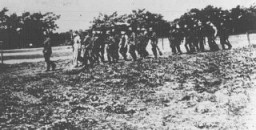
-
Political Prisoners
ArticleHitler's political opponents were the first victims of systematic Nazi persecution. They were incarcerated without trial and under conditions of great cruelty.
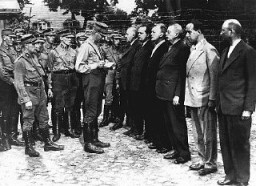
-
Holocaust Survivors and the Establishment of the State of Israel (May 14, 1948)
ArticleLearn more about the establishment of the state of Israel after World War II and its significance to Holocaust survivors.
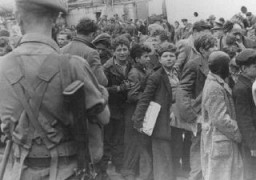
-
Postwar Trials
ArticleEfforts to bring the perpetrators of Nazi-era crimes to justice continue into the 21st century. Learn more about postwar trials and their legacies.
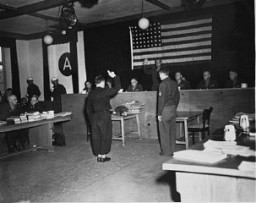
-
President Obama's Remarks at Buchenwald
ArticlePresident Barack Obama visited Buchenwald concentration camp in Germany on June 5, 2009. In a speech at the site, he repudiated Holocaust denial. Browse transcript.

-
The Press in the Third Reich
ArticleAfter rising to power, the Nazis eliminated freedom of the press in Germany. Learn more about how they established control over the press and manipulated it.
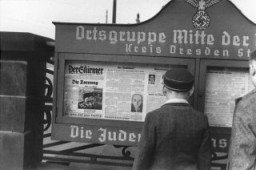
-
Prisoners of the Camps
ArticleJews were the main targets of Nazi genocide. Learn about other individuals from a broad range of backgrounds who were imprisoned in the Nazi camp system.
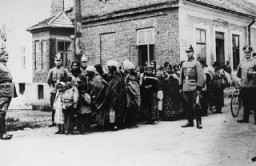
-
Protocols of the Elders of Zion
ArticleThe Protocols of the Elders of Zion is the most widely distributed antisemitic publication of modern times. Although repeatedly discredited, it continues to circulate.

-
Protocols of the Elders of Zion: Key Dates
ArticleExplore a timeline of key events related to the Protocols of the Elders of Zion, the most notorious and widely distributed antisemitic publication of modern times.

-
Public Humiliation
ArticleThe Nazis used public humiliation tactics to degrade their victims and to reinforce Nazi racial ideology for German citizens and populations under Nazi occupation.
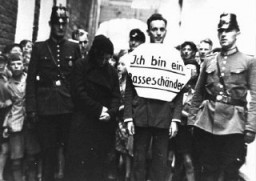
-
Purim
ArticleLearn about the background and traditional observances of Purim, a Jewish holiday marking the deliverance of the Jews from a royal death decree.
